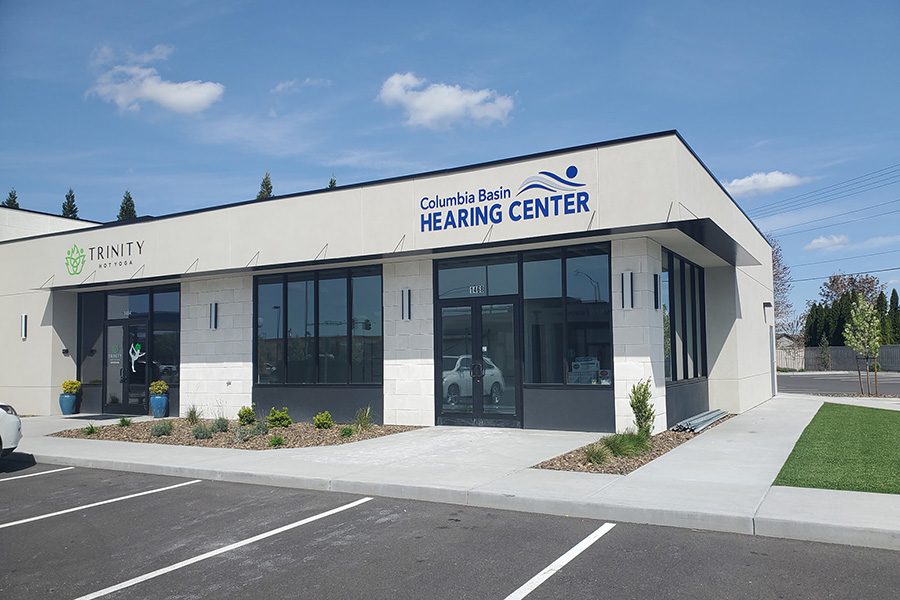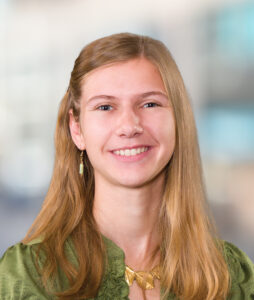
Home » Hearing center expands to West Richland
Hearing center expands to West Richland

Columbia Basin Hearing Center’s new clinic will open in early May at 1468 Bombing Range Road in West Richland.
Photo by Chad UtechtApril 14, 2025
As hearing aid technology continues to advance, business is booming for a Kennewick audiology center and plans are in motion for an expansion to West Richland.
It’s been several years since Columbia Basin Hearing Center had an office in Richland, but returning to the area has always been on the business’s radar.
“We have a lot of patients over there, and we would love to be able to offer those services and make it a little more convenient for people,” said Shannon Marie, owner of CBHC and doctor of audiology.
Now, they’ll be able to. Columbia Basin Hearing Center’s new West Richland office will open in early May, with a grand opening set for early June.
By adding an office there, not only do West Richland residents have better access to audiology services, but so do those living in Benton City, Prosser and the Yakima Valley. Access is especially key for seniors and those for whom transportation might be an issue.
“It’s a really up and coming place, and we’re excited to see the growth and be a part of that,” Marie said.
West Richland office
CBHC specializes in hearing testing and treatment, working hand in hand with primary care doctors for any medical treatments that need to take place.
The center’s new space is at 1468 Bombing Range Road in West Richland, next door to Trinity Hot Yoga and across the street from Yoke’s Fresh Market. Once the West Richland office is ready to go, it will be open full time five days a week.
Already, staff are starting to schedule appointments for patients at the West Richland office.
“My Richland patients are thrilled as we’ve been telling them,” she said. “They’re really (excited) and it’s also exciting, you know, to see a business that you love, that you’ve been with for a long time, grow.”
For patients who love their Kennewick audiologists, there’s no need to worry about losing them – the hearing care professionals will be splitting time between the two offices.
Two new front office members will be staffing the West Richland center, and they’re currently training in the Kennewick office so that they’ll be ready to get the new facility up and running.
CBHC also has a Walla Walla office, and Marie previously traveled back and forth to work both there and in Kennewick. But with the West Richland office in the works, Marie said CBHC is working to recruit a full-time audiologist in Walla Walla.
Treatment accessibility
Business at CBHC has been busier than ever, Marie said.
In addition to the hearing loss that comes with aging, “we’re seeing younger and younger people with hearing needs as well due to noise exposure,” she said.
CBHC can perform hearing testing and can guide patients through the process of getting hearing aids or implants.
The new 1,500-square-foot space in West Richland will feature a built-in sound booth.
That’s where testing is conducted, meaning the booth has to meet certain requirements: it needs to be soundproof to reduce the noise outside, Marie said.
This sound booth will be much larger than a traditional sound booth, she said, making it a more comfortable space for those with testing anxiety and offering plenty of room for wheelchair access.
A recent piece of state legislation has also been a boon for those with hearing loss, Marie said.
In 2023, a law was passed to offer coverage of hearing aids for qualifying patients, up to $3,000 per ear every 36 months.
“If you take that cost barrier away, all of a sudden I’m seeing so many teachers or people working in the cities that have put off treating their hearing loss because of financial barriers that now we’re able to help because of that legislation,” Marie said.
“So that was a real big game changer and we’re super proud of being a state that offers that kind of coverage.”
Enhanced technology
CBHC also offers telehealth options and is planning to expand the program.
It started four years ago, when Marie thought to bring on a tele-audiologist from across the country since it’s difficult to attract experienced audiologists in the Tri-Cities. The tele-audiologist can help with basic appointments while the patients remain in the comfort of their homes.
Today most hearing aids are Bluetooth-compatible, Marie said, so by downloading an app, they can help extend services to patients who might struggle with transportation.
“It’s something that I think is going to be really convenient for our working professionals, our seniors, our people with limited transportation, or just people really looking for that convenience and not having to go into the office,” she said.
Hearing aids are pretty advanced now: some can geotag specific locations and perform certain settings at those locations; some have translation services built in; many can connect to Bluetooth and stream music or phone calls directly to hearing aids.
While AirPods are starting to be used as hearing aids, the innovation doesn’t threaten CBHC’s business. Instead, Marie is glad because it means people are talking about hearing loss.
She said that many people wait years before coming in about their hearing loss. “They just don’t want to do something about it either because of a stigma or maybe price concerns,” she said. “And so with these cheaper options, people can start playing with some augmented hearing and see if they get some benefit.”
Marie described AirPods used as hearing aids as “readers” for the ears. They can help a little and make treatment for hearing loss more accessible. They aren’t a medical grade hearing aid, but they can give people options to start seeing what might help with the hearing loss if they aren’t ready for hearing aids.
"There’s really never been a better time to look at (hearing aid) technology because it’s actually doing everything it should be doing and then some,” Marie said.
Go to: columbiabasinhearing.com.
Real Estate & Construction Local News Health Care
KEYWORDS April 2025
Related Articles
Related Products





